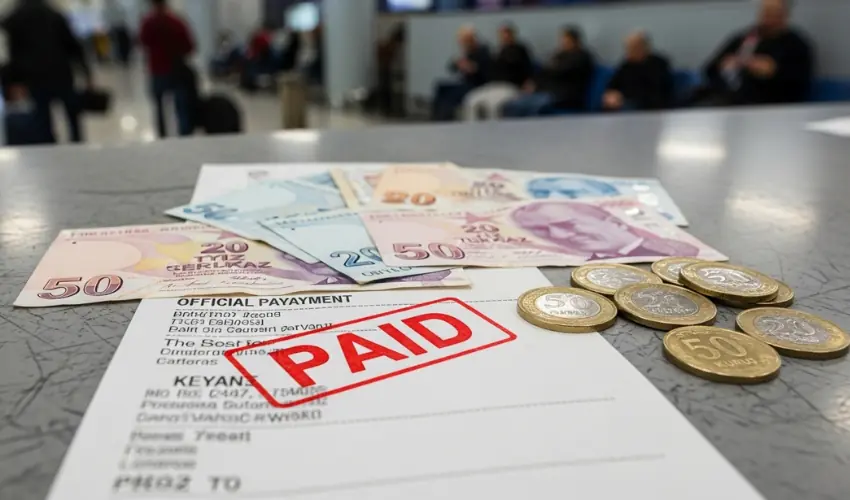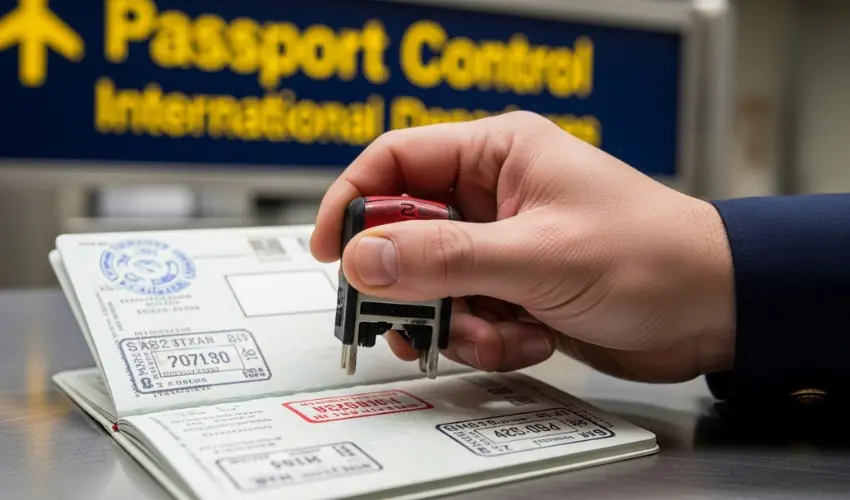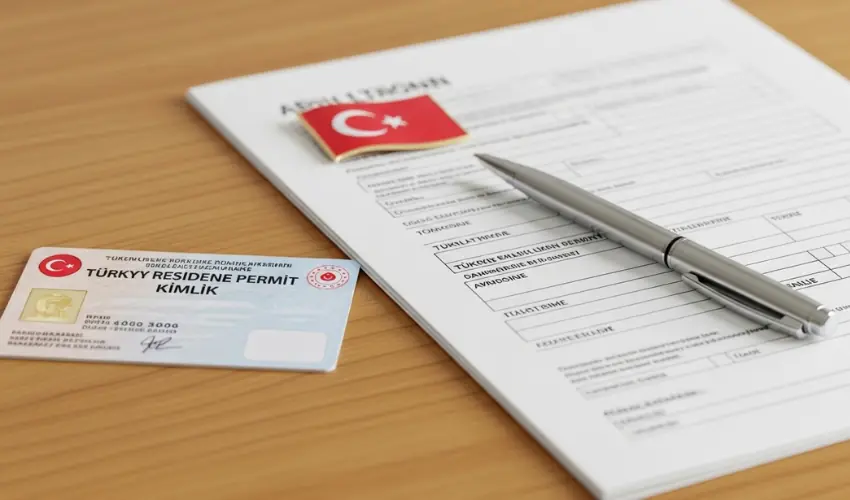In recent years, Turkey has become a popular destination for travel, work, and residence due to its economic opportunities and diverse lifestyle. However, many foreign nationals may unintentionally or due to lack of awareness of the laws, overstay their authorized period in the country; an issue that can carry significant legal and financial consequences. This article examines all legal dimensions related to staying more than three months in Turkey, covering everything from the amount of fines and potential restrictions to the details of cost calculation and legal methods for exiting the country.
Understanding the Lawful Stay Period
To understand the penalties for overstaying three months, it is essential to first define the legal limit of stay for foreign nationals. An unauthorized (illegal) stay means presence on Turkish soil after the expiration of the legally determined time limits.

1. The 90-Days in 180-Days Rule: The Maximum Limit for Tourist Stay
According to Turkish immigration laws, citizens of many countries can enter the country without a visa for short-term and tourist trips. However, this exemption has a specific time limit: the traveler is permitted to stay in Turkey for a maximum of 90 days within any 180-day period.
This rule is rotational and must be considered carefully:
- Cumulative Calculation: The authorized 90 days is the total sum of all days the individual has spent in Turkey within the past 180 days. This period can be continuous or across several short trips.
- Start of Violation: As soon as an individual's stay exceeds 90 days within the 180-day period, their stay automatically changes to "unauthorized" or Overstay status.
- Condition for Re-entry: After completing 90 days of stay, the individual must leave Turkey and wait until the end of the 180-day period before they can enter the country again.
2. The Importance of Applying for a Residence Permit (Randevu) Before the End of the 90-Day Limit
The only legal path to stay more than 90 days is to apply for a longer-term residence permit (such as a one-year tourist permit, property-based permit, or work permit). This application process begins with registration and obtaining an interview appointment (Randevu) on the official Immigration Administration system (e-ikamet). It must be noted that any foreign national who intends a long-term stay must apply for the Randevu before the completion of their ninetieth day of stay.
If an individual applies for a Randevu after the 90th day or on the 91st day, they are no longer legally considered an authorized applicant. This small delay changes the individual's status from a foreign citizen with a visa exemption right to a violator of immigration law. According to Turkish Law 6458, violating the visa or visa exemption period by more than 10 days is considered grounds for issuing a deportation order. Therefore, to prevent the consequences of fines and deportation, the residence application must be submitted within the authorized time frame, i.e., before 90 days.

Cash Fine for Unauthorized Stay (Calculation and Ancillary Costs)
The fine applied for unauthorized stay in Turkey is not just a single amount, but a set of legal and administrative costs calculated and collected at the border upon exit.
Three Main Components of the Border Fine
The final fine amount includes three separate components that border officers calculate, and the individual is obliged to pay all of them in Turkish Lira (TL) at the border location.
1. Base Fine (Overstay Fine)
This amount is calculated based on the duration of the overstay. The base fine rate is usually set in US Dollars and then converted to Lira at the current exchange rate.
- First Month: 50 USD.
- Subsequent Months: 10 USD is added for every full month after the first month.
This part of the fine is calculated incrementally:
Estimated Base Cash Fine Calculation (Based on US Dollars)
| Duration of Overstay | Estimated Base Fine (USD) |
|---|---|
| 1 Month (1 to 30 days) | 50 USD |
| 2 Months (31 to 60 days) | 60 USD |
| 3 Months (61 to 90 days) | 70 USD |
| 4 Months (91 to 120 days) | 80 USD |
| 6 Months (151 to 180 days) | 100 USD |
| 7 Months | 110 USD |
2. Residence Permit Fee (İkamet Harcı)
This fee is a government charge related to residence permit applications and is not actually a “soil fee.” The Residence Permit Fee (İkamet Harcı) for foreigners over 18 is normally collected when applying for a residence permit, but in overstay cases, a proportional amount may be added by the authorities as part of the administrative fines at the border.
3. Miscellaneous Administrative Costs (Lira-Based)
In cases where the individual has stayed in Turkey without obtaining a residence permit, administrative costs related to issuing the residence card are also added to the fine. These costs have increased significantly in recent years and include:
- Residence Card Issuance Fee: This fee is added to the final amount if a residence permit was not obtained (e.g., approximately 810 Turkish Lira).
- Visa/Entry Permit Fee: In some cases, especially if the individual entered without a visa and overstayed, a "Visa Fee" may also be applied (e.g., approximately 7,882.70 Turkish Lira).
Ambiguity in Calculation and Actual Costs
The tables often published in unofficial sources only show the dollar-based base fine. However, it must be understood that the final amount payable at the border gate will be much higher than expected due to the addition of the Lira-based components of the Residence Permit Fee (İkamet Harcı) and other administrative fines. The Turkish Directorate General of Migration Management emphasizes that the amount collected at the border is a combination of fines and "Public Receivables" that must be collected according to the Law on Public Receivables.
If an individual has overstayed for four months, their base fine is 80 USD, but the Lira-based ancillary costs may increase the total amount to several hundred dollars. Lack of awareness of these ancillary costs and inability to pay them in full at the border can directly lead to a long-term entry ban. This is where the importance of fully paying the fine at the moment of exit becomes evident.

Entry Ban (Deportation): A Much Heavier Penalty
The most severe consequence of unauthorized stay in Turkey is not the cash fine, but the entry ban (re-entry prohibition) to the country. The duration of this ban completely depends on the manner of the individual's exit and the length of the violation.
1. The Important Difference Between Voluntary Exit and Compulsory Deportation
Turkish law distinguishes between two situations: Voluntary Exit and a Deportation Order issued by the Governorship or Police.
Voluntary Exit: If the individual reports to the border gate for departure on their own, before being identified and detained by the authorities, and pays all calculated cash fines, the law imposes less strictness. In this case, the duration of the entry ban, according to the instructions of the Migration Administration, is determined based on the duration of the overstay:
Table of Re-Entry Ban to Turkey (In case of Voluntary Exit and Payment of Fine)
| Duration of Overstay | Ban Duration |
|---|---|
| Less than 3 Months | No Entry Ban (Only cash fine and administrative costs must be paid.) |
| 3 Months to 6 Months | 1 Month Entry Ban |
| 6 Months to 1 Year | 3 Months Entry Ban |
| 1 Year to 2 Years | 1 Year Entry Ban |
| 2 Years to 3 Years | 2 Years Entry Ban |
| More than 3 Years | 5 Years Entry Ban |
This table shows that if the unauthorized stay is less than three months, the individual can avoid an entry ban by voluntarily exiting.
2. Consequences of Non-Payment of Fine and Compulsory Deportation
If an individual refuses to pay the fine, or if their unauthorized stay has lasted more than 10 days and they face a deportation order (based on Article 54 of the law), the following consequences will be applied:
- Long-Term Ban: The duration of the ban can vary from 1 month to 5 years and is likely to be stricter than the voluntary exit scenario.
- Permanent Ban Due to Debt: Even if the initial ban duration (Ban) ends, if the individual has not paid their "Public Receivables" or administrative fines, they will be permanently prohibited from re-entering Turkey, according to the law. Turkish border officials explicitly have the right to deny a visa or entry to foreigners who do not accept or have not paid debts arising from previous visa or stay violations.
Therefore, to ensure the ability to re-enter Turkey in the future, the full payment of the cash fine and settlement with the Turkish government at the time of exit is considered essential.
Steps for Exiting Turkey and Settlement
To minimize potential penalties, the individual must correctly follow the voluntary exit process.
1. How to Approach Border Gates and Pay the Fine
- Planning for Exit: The individual must go to one of the border gates (usually the airport) with a valid passport (it is recommended to have at least 6 months validity) and financial readiness to pay the fine in Turkish Lira.
- Declaring Unauthorized Stay: At the passport control gate, the individual must inform the officer of their overstay status. The border officer will check the duration of the violation and calculate the final fine amount.
- Paying the Fine: The individual is directed to the banks located in the airport to pay the cash fine and administrative costs in Turkish Lira.
- Completing the Exit: After receiving the payment receipt, the individual returns to the gate for the exit stamp to be placed in their passport. At this stage, the border officer will inform them of the duration of the entry ban.
2. Special Circumstances
- Unauthorized Stay Under 10 Days: If an individual has only violated their visa or visa exemption period by a few days (less than 10 days) and voluntarily proceeds to exit, they may, according to the law, not be subject to a deportation order or entry ban. However, the cash fine related to those few days must still be paid.
- Emergency Situations (Illness): If an individual was forced to overstay due to an emergency or severe illness, they can attempt to prevent severe penalties by presenting substantiated medical documents and treatment certificates. In some rare cases, these conditions may be accepted as a "justifiable reason" for the overstay.

Solutions for Lifting the Entry Ban (Deportation) and Prevention
For individuals who have been banned from entry (especially with codes related to stay violation, such as code M-54), there are solutions for legal return.
1. Possibility of Cancelling the Entry Ban with Alternative Visas
The entry ban imposed due to the violation of a tourist stay can be lifted by aiming for another type of visa. Turkish law provides the possibility for a banned individual to bypass the ban by applying for visas with a stronger and more targeted nature, including:
- Work Visa: By obtaining a work permit from the Turkish Ministry of Labor.
- Student Visa: For studying at Turkish universities.
- Family Unification Visa: Through marriage or accompanying a Turkish or resident foreign spouse.
This process is complex and often requires the assistance of expert immigration lawyers to properly present the case to the Migration Administration or judicial authorities.
2. Prevention: Changing the Long-Term Stay Route
Due to the recent strictness of the Turkish Migration Administration, relying on the renewal of a tourist residence permit, especially after the first year and solely based on renting a property, has become very difficult. Authorities now strictly review renewal applications and often reject renewals unless there are justified cases such as medical, educational, or family reasons. Therefore, to stay legally and prevent an unauthorized stay status in subsequent years, it is recommended that foreign nationals establish a stronger legal basis for their stays, such as:
- Obtaining residency through company registration and a work permit.
- Obtaining residency through property purchase (Property Residence Permit).
Conclusion
The penalty for overstaying more than three months is a set of financial and legal consequences, and the biggest penalty for this act is the prohibition of re-entry to the country. For individuals who have exceeded the authorized 90-day period, attention to two key points can greatly help in managing the situation correctly:
- Prioritize Voluntary Exit: Prompt and voluntary reporting to the border (before being identified by authorities) and full payment of the fine is the best strategy to prevent long-term or permanent bans. If the unauthorized stay is less than three months, any entry ban can be avoided by voluntary exit.
- Complete Financial Settlement: The cash fines, including the Residence Permit Fee (İkamet Harcı) and administrative costs, are essentially a cost to purchase the possibility of re-entering Turkey in the future. Failure to pay these debts can lead to a permanent entry ban to Turkey under Turkish law, even if the duration of the initial ban has expired.

 USD
USD
 TRY
TRY
 EUR
EUR
 IRR
IRR
 RUB
RUB

Comments